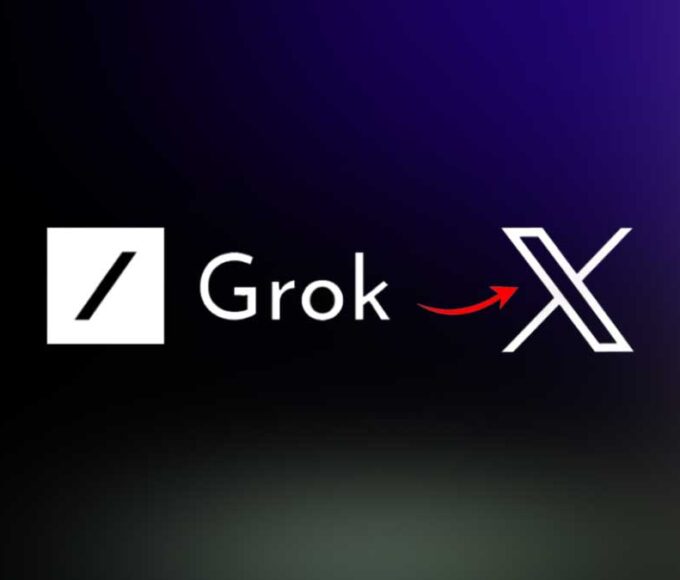- Home
- Billionaires
- Investing Newsletters
- 193CC 1000
- Article Layout 2
- Article Layout 3
- Article Layout 4
- Article Layout 5
- Article Layout 6
- Article Layout 7
- Article Layout 8
- Article Layout 9
- Article Layout 10
- Article Layout 11
- Article Layout 12
- Article Layout 13
- Article Layout 14
- Article Sidebar
- Post Format
- pages
- Archive Layouts
- Post Gallery
- Post Video Background
- Post Review
- Sponsored Post
- Leadership
- Business
- Money
- Small Business
- Innovation
- Shop
Recent Posts
Google Pauses People Image Generation in Gemini AI

Google has announced a temporary halt to its Gemini image generator’s ability to create images of people, following criticism and concerns about the program’s accuracy in depicting individuals’ races in historical contexts. This decision comes in the wake of Elon Musk’s criticism of the service, labeling it as “woke.”
The announcement was made on Thursday, with Google stating that it will “pause” the generation of images of people through the Gemini image generator. This move comes after the program faced backlash for displaying misleading depictions of people’s races in historical scenarios. Google mentioned that it is actively working to improve these depictions immediately.
Less than 24 hours after announcing the intention to improve these depictions, the company disabled the feature, promising an “improved version” of the service in the near future. However, Google has not provided a specific timeline for when the image generation of people will resume, and Forbes’ request for comment remains unanswered.
Jack Krawczyk, Google’s product director for Gemini Experiences, confirmed that the chatbot was indeed providing inaccurate historical image generation depictions. He mentioned that the company is working on “further tuning” the service to accurately reflect historical contexts.
While Forbes can still utilize Gemini to create images of inanimate objects like houses, the service is currently unable to generate images of people. The chatbot stated that the feature is expected to return soon, and users will be notified through release updates.
In terms of background, Google launched Gemini, previously known as Bard, on February 8, directly competing with other generative AI programs like OpenAI’s ChatGPT, which is backed by Microsoft. Gemini offers an image generator similar to Midjourney and OpenAI’s DALL-E. However, shortly after its release, users noticed that the generator was creating images of “historical” figures and scenes with inaccuracies. For instance, it displayed images of black women for the prompt “US senator from the 1800s,” even though the first black woman to serve in the Senate was Carol Moseley Braun, elected in 1992. Another example showed women and black men wearing World War II-era German military uniforms. Google has acknowledged these inaccuracies and is actively working to address them.
Elon Musk, the billionaire founder of competitor xAI, criticized Gemini’s image generation service, describing it as “woke” and “racist.” In contrast, xAI is known for its focus on maximum truth-seeking. Although founded in March 2023, xAI released its chatbot, Grok, in November and does not yet offer image generation services.
In a related tangent, other AI image generators have faced criticism for producing racially biased images that predominantly feature white individuals. A 2023 report in the Washington Post highlighted biases in images generated by Stable Diffusion XL, offered by startup Stability AI. Prompts like “a productive person” and “attractive people” produced images only of white individuals, while the prompt “person at social services” produced only images of people of color. Google designed Gemini’s image generation to address these biases, aiming to reflect its global user base and take representation and bias seriously.
In summary, Google’s decision to pause Gemini’s ability to create images of people reflects its commitment to addressing criticism and improving accuracy in AI-generated content.
Recent Posts
Categories
- 193 Countries Consortium Partner1
- 193cc Digital Assets2
- 5G1
- Aerospace & Defense48
- AI37
- Arts3
- Banking & Insurance11
- Big Data3
- Billionaires1,261
- Boats & Planes1
- Business332
- Careers13
- Cars & Bikes79
- CEO Network1
- CFO Network17
- CHRO Network1
- CIO Network1
- Cloud10
- CMO Network18
- Commercial Real Estate7
- Consultant1
- Consumer Tech194
- CxO1
- Cybersecurity73
- Dining1
- Diversity, Equity & Inclusion4
- Education7
- Energy8
- Enterprise Tech29
- Events11
- Fintech1
- Food & Drink2
- Franchises1
- Freelance1
- Future Of Work2
- Games149
- GIG1
- Healthcare79
- Hollywood & Entertainment203
- Houses1
- India’s 1000 Richest1
- Innovation46
- Investing2
- Investing Newsletters4
- Leadership65
- Lifestyle11
- Manufacturing1
- Markets20
- Media327
- Mobile phone1
- Money13
- Personal Finance2
- Policy569
- Real Estate1
- Research6
- Retail1
- Retirement1
- Small Business1
- SportsMoney42
- Style & Beauty1
- Success Income1
- Taxes2
- Travel10
- Uncategorized13
- Vices1
- Watches & Jewelry2
- world's billionaires1,230
- Worlds Richest Self-Made Women2
Related Articles
Book Review: Unlocking AI’s Power in Everyday Life
In a world where artificial intelligence (AI) frequently makes headlines in the...
By 193cc Agency CouncilDecember 16, 2024OpenAI Pauses Sora Sign-Ups Due to High Demand
OpenAI has temporarily paused sign-ups for its much-anticipated Sora video tool due...
By 193cc Agency CouncilDecember 10, 2024xAI Secures $6 Billion to Advance Supercomputing and AI
Elon Musk’s artificial intelligence startup, xAI, has taken another significant step in...
By 193cc Agency CouncilDecember 7, 2024X Launches Free Version of Grok Chatbot with Usage Limits
X, formerly known as Twitter, has announced the launch of a free...
By 193cc Agency CouncilDecember 7, 2024















Leave a comment